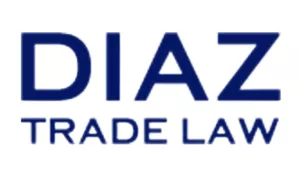The Consumer Product Safety Commission (CPSC) is tasked with protecting the public from unreasonable risks of injury or death associated with consumer products. The agency issues and enforces standards, issues product recalls, researches hazardous products, and more. The agency also has the authority to order the detention and seizure of goods that it believes to be non-compliant with CPSC safety regulations.
Beginning in 2025, products regulated by the CPSC may be denied entry into the U.S. unless the importer electronically files a detailed product certification with Customs and Border Protection (CBP).
See a full list of CPSC regulated products here.
CPSC's eFiling Proposal
Since 2008, importers have been required to maintain Certificates of Compliance stating that the product they are importing meets all applicable safety standards. However, these certificates did not need to be filed at the time of import.
In June 2022, CPSC announced a Beta Pilot test with CBP for eFiling of certificate data for regulated consumer products. In 2023, the CPSC and CBP began the text with 38 importer participants. In December 2023, the agencies published a notice expanding the Beta Pilot test to include up to 2,000 additional importer participants and to extend the test for up to three years. In announcing expansion of the test, the CPSC also proposed a new rule that would require that importers of regulated consumer products eFile Certificates of Compliance at import.
On November 22, 2024, the CPSC's General Counsel circulated a staff briefing memorandum recommending approval and publication of a final rule implementing the eFiling proposal.
eFiling Requirements
The eFiling rule will impose new requirements for how importers manage product certificate data, not which products require a certificate. Any consumer product that is subject to a CPSC rule, ban, standard, or regulation will continue to require a Certificate of Compliance, which will be eFiled at the time of entry.
Importers will be required to transmit Message Set data into CBP's Automated Commercial Environment (ACE) system at the time of entry.
There are two options to transmit this data:
Full PGA Message Set:
The importer provides their broker with the full product certificate for the imported product and the broker files it in the CPSC PGA Message Set.
Reference PGA Message Set:
The importer pre-enters the certificate data into the CPSC Product Registry and then provides their broker with certificate identifiers to be filed in the PGA Message Set.
When documents are uploaded into the Document Image System (DIS) they must be flagged as follows:
- Entry documents code "CPS"
- Test reports/CPCs code "CPS01"
Product Certification Requirements
The eFiling rule does not make any changes to which products require certifications. Products must be certified if they are:
- Finished products
- Subject to a consumer product safety rule, ban, similar rule, standard, or regulation;
- Imported for consumption or warehousing; or
- Distributed in commerce
There is no de minimis exemption for eFiling. Any product requiring certification must have an eFiled certificate, regardless of the value of the imported shipment.
What Importers Should Do
CPSC staff is recommending a 12-month implementation period for the eFiling requirements. However, importers should take steps now to familiarize themselves with the eFiling requirements and ensure they are prepared to file the required information.
The CPSC has published a variety of resources to assist importers in implementing this new requirement:
- eFiling Quick Start Guide
- eFiling Document Library
- eFiling Product Registry Guide
- eFiling Implementation Guide
The content of this article is intended to provide a general guide to the subject matter. Specialist advice should be sought about your specific circumstances.


